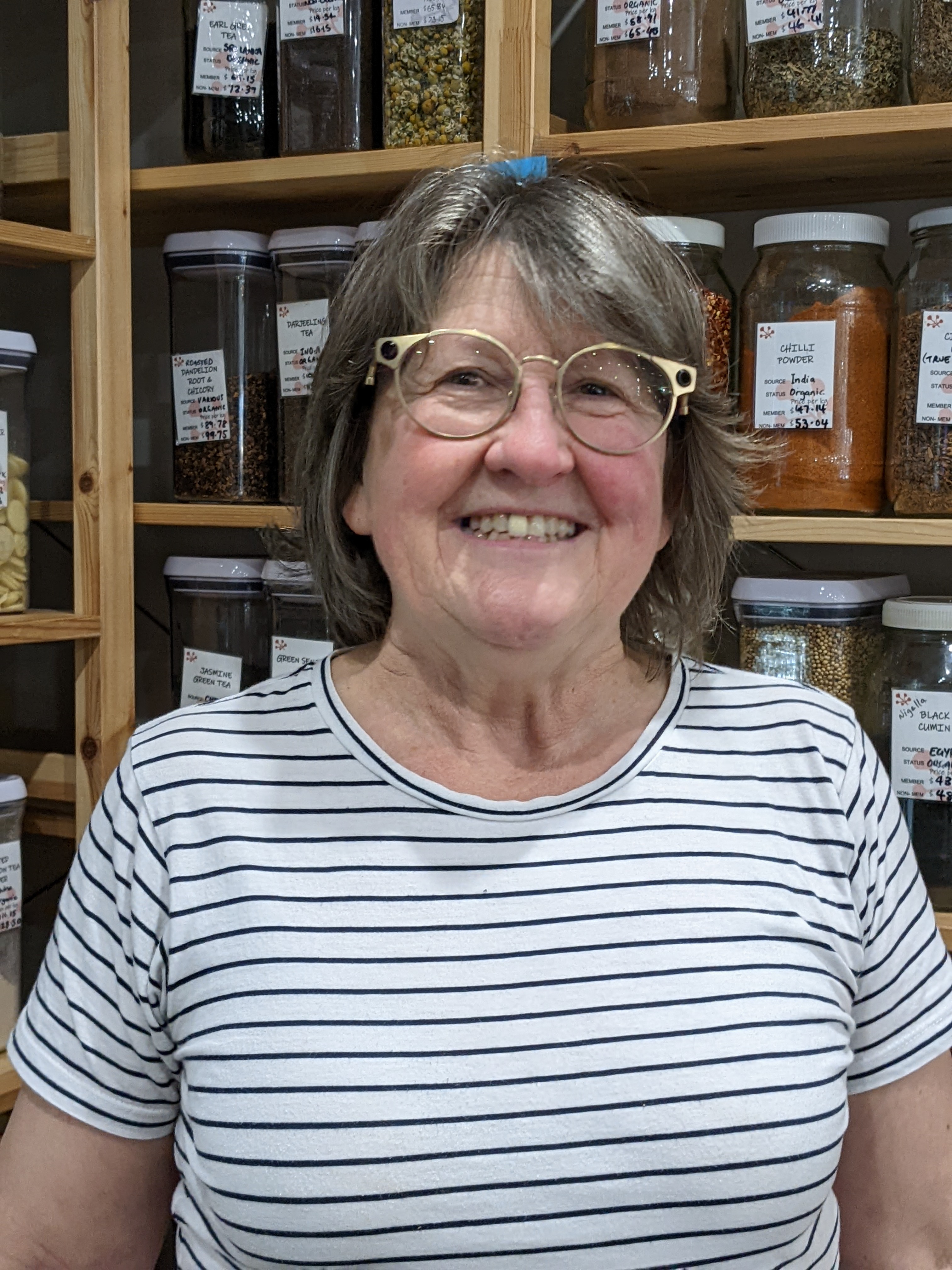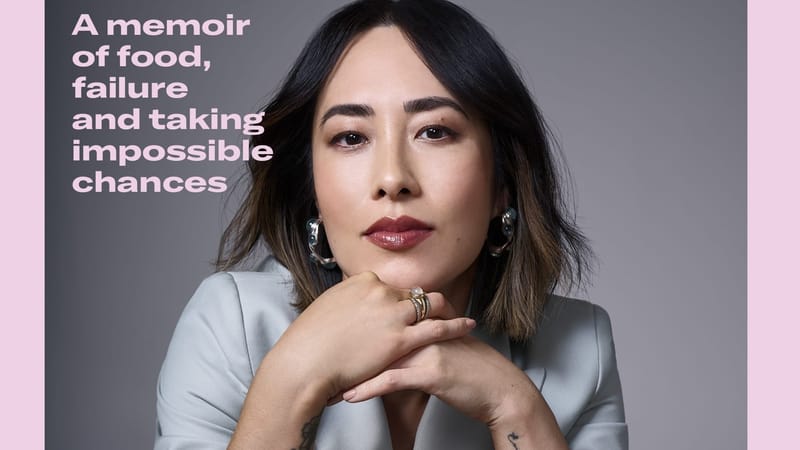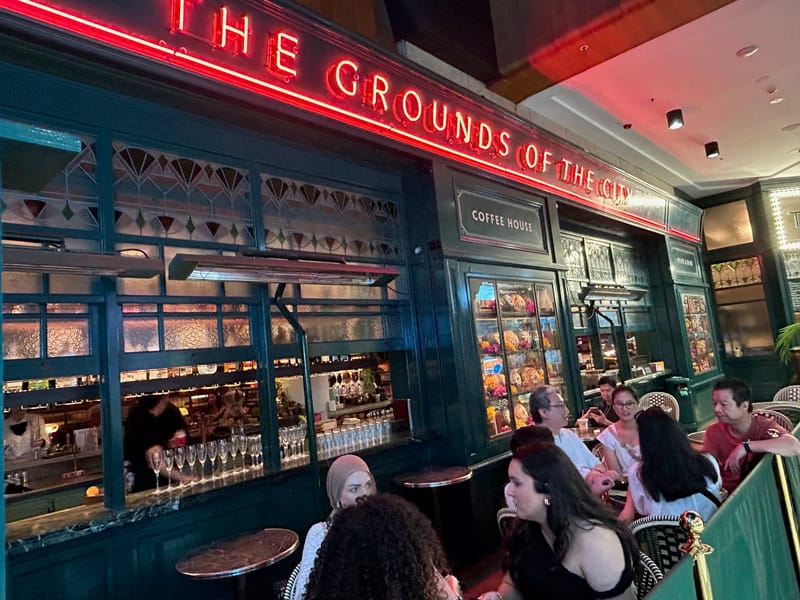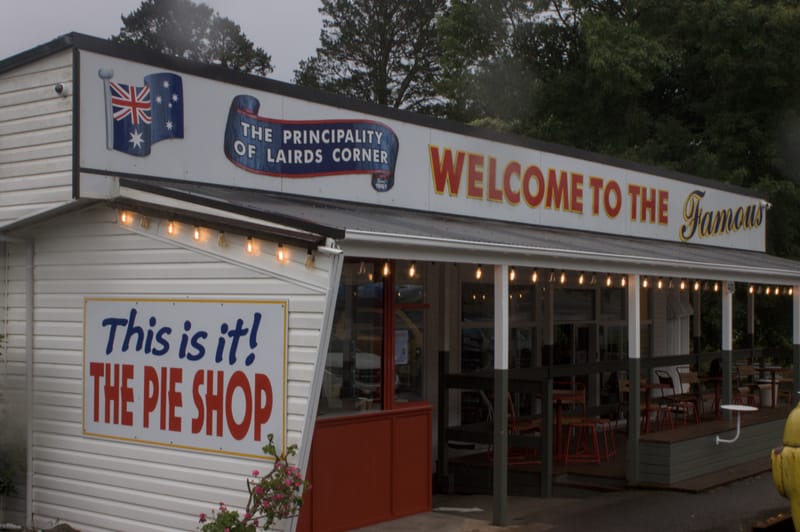Growing Flame Tree
In October 2007 a group of like-minded northern Illawarra people gathered with the idea of starting a local food co-operative. In May 2009 a foundation meeting established Flame Tree Community Food Co-operative and in 2010 a shop was established in...
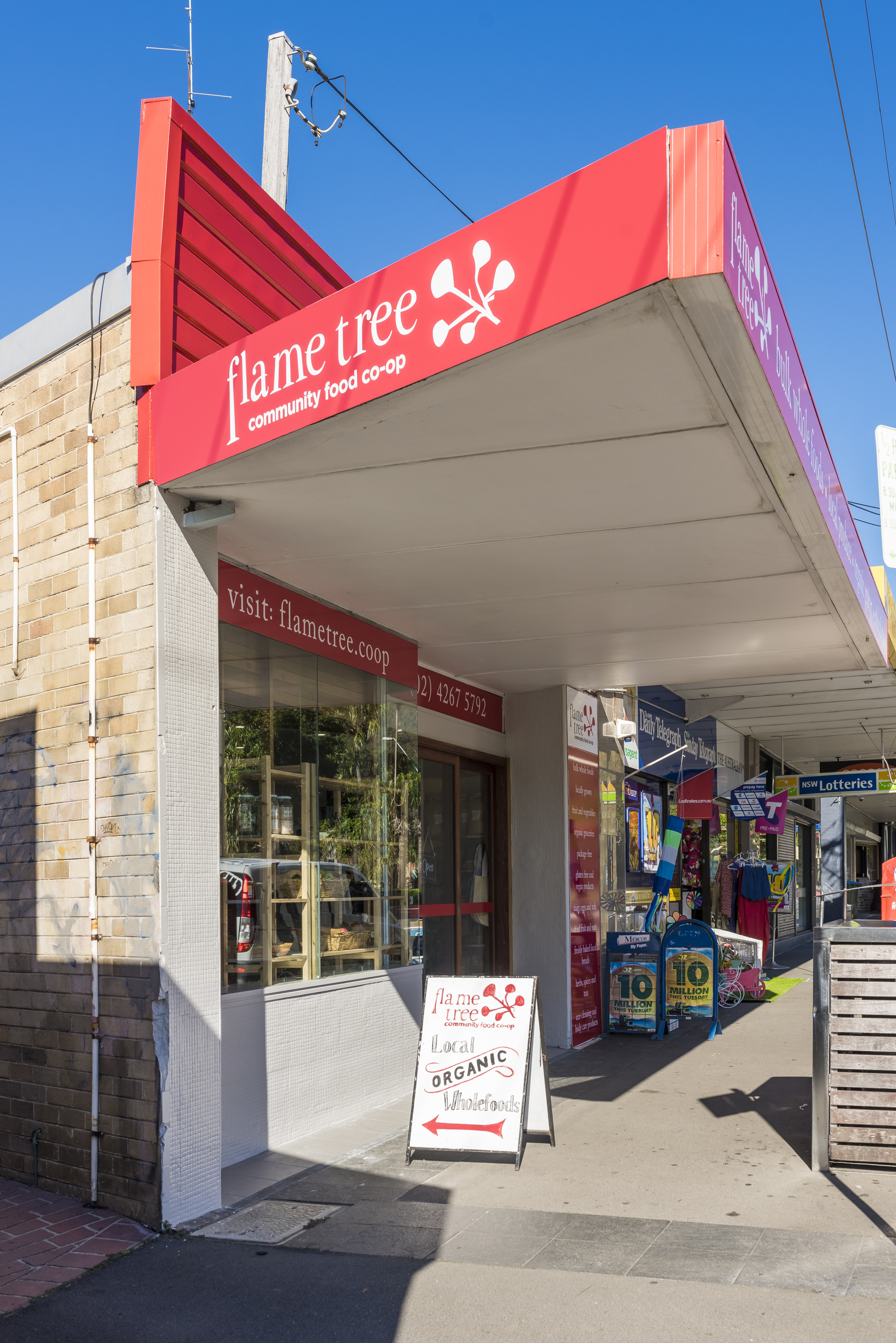
In October 2007, a group of like-minded northern Illawarra people gathered with the idea of starting a local food co-operative. In May 2009, a foundation meeting established Flame Tree Community Food Co-operative and in 2010 a shop was established in Thirroul, behind a dress shop. In 2012, the shop extended into the street frontage and in February 2018, after a successful crowd funding campaign, Flame Tree moved to its current premises in Lawrence Hargrave Drive.
Thirroul resident Amanda Harris was one of the inaugural directors and has remained an active Flame Tree volunteer ever since, now as a part of the finance team. As a fellow Flame Tree shopper, volunteer and ex-staff member, I was keen to hear from Amanda about the history of the Co-op.
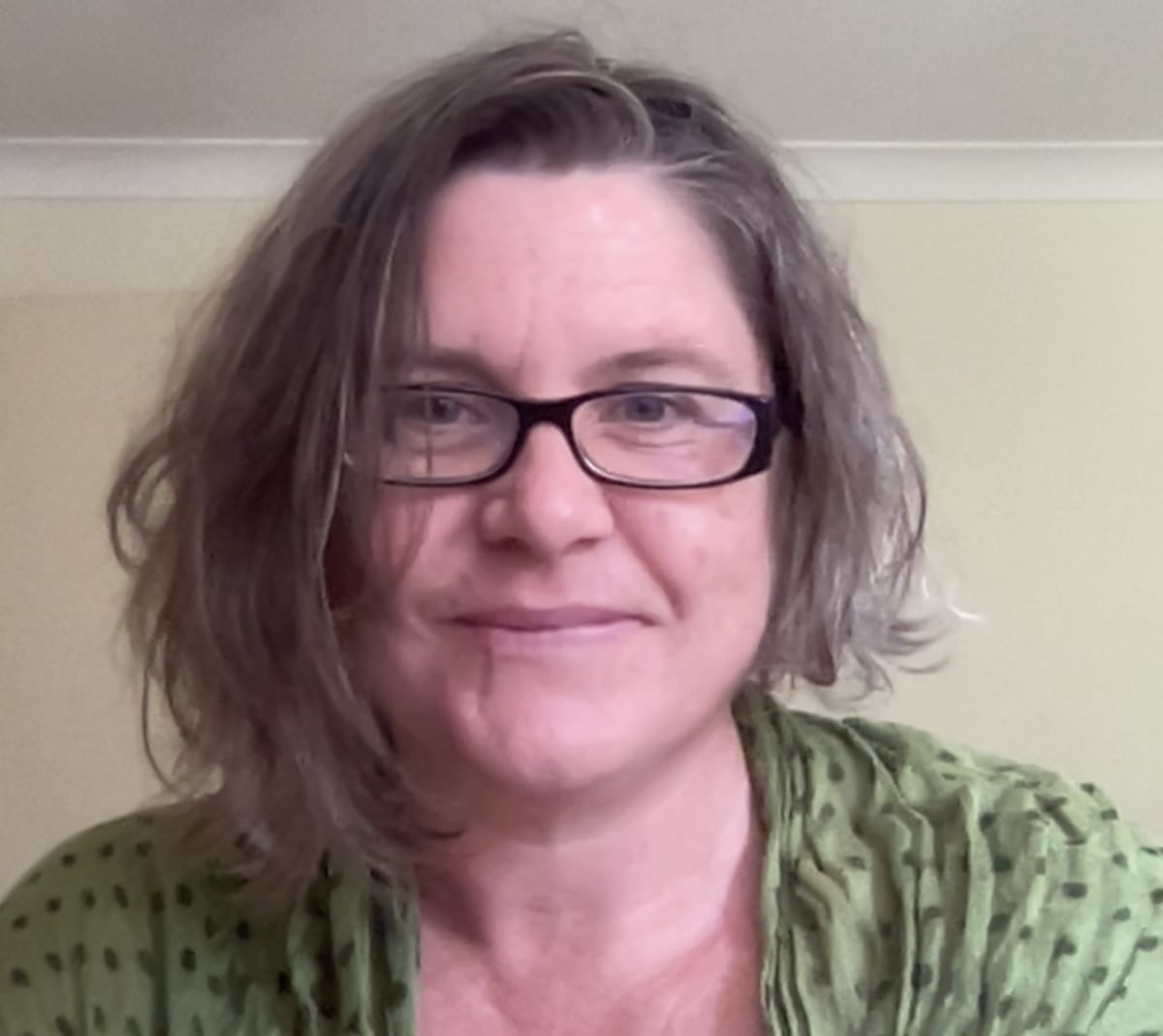
Amanda moved to the northern Illawarra about the same time that others in Thirroul were considering a food co-op. She was a regular shopper and volunteer at Alfalfa House in Enmore, so had experience with the co-op business model and operation. She loved the package-free shopping at Alfalfa and wondered how she was going to continue to shop this way in her new location. She was also keen to find her new community.
The first meeting for the proposed co-op was held in October 2007, just prior to Amanda moving to the Illawarra, but she attended anyway. With low expectations, the organisers set out 12 chairs, but the meeting was standing room only. This was the beginning of a lengthy process of research, meetings, more research and more meetings driven by a core group of committed volunteers. Luckily there were other co-ops to learn from including Alfalfa House, Blue Mountains and Manly.
Why a co-operative? The most important aspect of co-operatives are people. A co-op belongs to, is operated by, and benefits the people who join them. The members have a common business or social interest and own, control and use the business. Members are equal decision makers. Many co-ops including Flame Tree are not-for-profit, reinvesting any profits in the business. In the case of Flame Tree, the common values were putting people, the planet and quality nourishing food before profit.
The legalities and practicalities of setting up a co-op were a learning curve for all involved, but many in the community were able to donate relevant expertise. There was much to be done. Setting up the business with Fair Trading, developing a constitution, engaging prospective members and volunteers, researching and sourcing sustainable products, liaising with local growers and setting up the shop infrastructure were just some of the tasks.
With the shop taking two and a half years to open to the public, in the interim a buyers group was formed with up to 20 families sharing bulk items bought from suppliers such as Honest to Goodness and Spiral. Bulk organic items such as rice, flour, sugar, oils and vinegars were purchased and divided up amongst the participants. The learning continued.
Flame Tree was conceived as volunteer-run, from serving customers to all the behind-the-scenes roles, and moved from nothing to a viable business with hard work and community engagement including monthly stalls at Coledale and other local markets, soup and film nights and other community events to bring people in. It started with 125 members and now has more than 600. The recruitment of paid staff allowed Flame Tree to open to the wider community, but Amanda says that, in the early days, the shop almost never had to shut due to the hard work of a core group of volunteers keeping the doors open.
Those at the early meetings quickly agreed that a common purpose was to encourage and support a local food (Illawarra and NSW) network. This required more research and eventually several enduring partnerships were formed – Dapto Community Farm for fresh produce, Glenbernie for apples and stonefruit, Malfoys for sustainably sourced honey, Spencer chocolate, Hand n Hoe macadamia butter, Daintree tea and Delano coffee.
As new local businesses arose, more partnerships were formed. Flame Tree became a hub for building and connecting local food networks.
The first shop was too small to stock fresh produce, so the offer was made to the growers from Dapto Community Farm to hold a Saturday stall in the alley beside the shop. Soon Flame Tree became a hub for the collection of Green Connect produce boxes. Moving into the new shop with its spacious cool room opened the opportunity for a greater range of product range and what is now a large selection of seasonal local and Sydney Markets organic produce.
Fifteen years on from the germination of Flame Tree, I asked Amanda about the changes that she has seen in the community and in particular, local food retail. When Flame Tree started in Thirroul there was the IGA and Bi-Lo (now Coles) with the Thirroul Fruit Barn specialising in fresh produce. Manic Organic started in Thirroul and eventually moved to Woonona (now Wholistic Living). There was no one doing unpackaged wholefoods or locally produced food products.
Amanda says: “Flame Tree has been so important to me over the last 15 years in fostering a community of people who want to see sustainable access to local food, who want to support local networks of food growing and find ways to avoid the cycle of disposable packaging going to landfill.”
Flame Tree lead the way in the Thirroul community because of some forward-thinking innovative people. The Illawarra is lucky to have this community store that provides an alternative to the large supermarkets, providing local growers and producers a place to sell to customers.
We need to use it or lose it. Flame Tree urgently needs more customers, more members (though you don’t need to be a member to shop at Flame Tree) and more volunteers to share the load.
The last word goes to Amanda. “It is really heartening for me to see the ongoing inflow of new members, shoppers and volunteers. The new faces and enthusiasm I see in the co-op community makes me feel confident about its future.”
In her life outside Flame Tree, Amanda Harris is a musicologist and cultural historian at the University of Sydney. Her work focuses on cross-cultural engagements, histories of music and dance and women’s histories.
In 2020 Amanda published her book, Representing Australian Aboriginal music and dance 1930-1970.
Amanda is also the Sydney director of Pacific and Regional Archive for Digital Sources in Endangered Cultures (PARADISEC), a digital archive of records of small cultures and languages of the world.
For more information, visit the Flame Tree Community Coop

